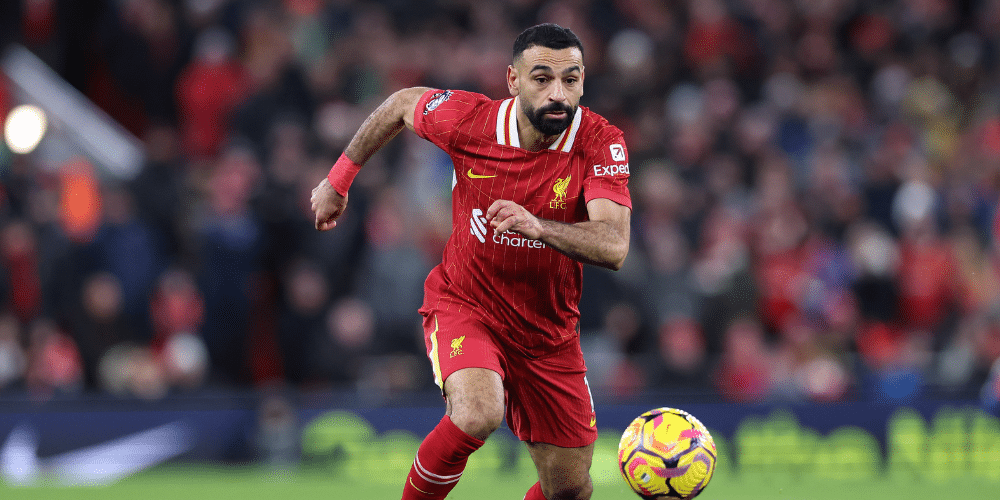Sports
Packers vs. Bears, Brewers vs. Cubs: Wisconsin’s beef with Illinois run deep in realm of sports

Wisconsin Vs. Illinois: The states compete in tourism, sports, history
Here are just some of the many reasons Wisconsin and Illinois always have their competitive juices flowing.
The mood was celebratory during the Democratic National Convention at the United Center in Chicago in August as states paraded through a roll call of pledges, dedicating delegates to presidential nominee Kamala Harris. But even in this moment when Wisconsin’s leader, Democratic Governor Tony Evers, found himself in alliance with the state of Illinois (governor J.B. Pritzker even spoke at the convention earlier that night), he couldn’t resist poking the … uh, Bears.
Before Evers’ own moment on the mic went viral for different reasons, he enumerated the state of Wisconsin’s sports teams, including the Green Bay Packers. And yes, even in that moment of joy and unity, there were boos. Granted, they were probably at least partially playful, but there are lines you can’t quite cross in this tenuous partnership.
If the venues had been switched, what would have happened? If the roll call had taken place at Fiserv Forum in Milwaukee, where Harris was hosting a rally that same night, and it was Pritzker briefly mentioning the Cubs and Bears, what kind of boos would we have heard? We bet they’d be even louder. And genuine. Chicago and Wisconsin have been at odds over pro sports for generations.
More: What’s Wisconsin’s beef with Illinois? For some, it’s the (many) tourists.
There’s nothing quite like what we have with the Milwaukee Brewers and Chicago Cubs, or the Milwaukee Bucks (who happen to call Fiserv Forum home) and Chicago Bulls (who happen to call the United Center home). Milwaukee stands as the smallest market in Major League Baseball and is among the tiniest in the NBA. Green Bay is unquestionably the smallest pro-sports market of all, and obviously Milwaukee is partial to the Packers.
Milwaukee and Chicago are separated by only 90 miles but also a state line and an unseen grand canyon. They’re enmeshed in the same conferences and divisions, unlike major markets that sit closer together, like Oakland and San Francisco or Baltimore and Washington, D.C. And unlike Philadelphia and New York, roughly the same distance apart, the dissimilar sizes of Milwaukee and Chicago create a laboratory for hard feelings.
Is it a bit of a “little brother” complex where the small city’s distaste for the bigger one is borne of envy? Perhaps. Chicago does, after all, have far more pro sports titles than Wisconsin. But Milwaukee and Wisconsin fans take some pride in their provincial ecosystem and know full well their sports fandom never leaned on national cable broadcasts or the support of big-market luxury.
Any time a national pundit wonders which big-market could be the next home for Giannis or how the small-market Brewers can possibly compete in the National League, out comes the distrust of the big city, and Chicago presents the perfect paradigm for our wariness.
Packers versus Bears (who still suck)
The irony of “The Bears Still Suck Polka,” written in 1991 by the Manitowoc-based Happy Schnapps Combo, is that it reads to subsequent generations of Packers fans as an anthem of sustained superiority, but was born from a sentiment of consolation.
The lyrics hint at it, but even cursory knowledge of Packers history will tell you that 1991 was no moment for Packers fans to be spiteful. The team was on the precipice of a three-decade run of success but hadn’t gotten there yet. Brett Favre and Reggie White were still in transit to the destinations that would make them Super Bowl champions and legends. The Bears were the team with the more recent success story, a Super Bowl after the 1985 season.
Yet the polka, filled with lyrics dripping in exaggerated Wisconsin accents, grew into an ethos for Packers fans across the state. Even Chicago radio station WLUP began playing the song after Bears losses in the early 1990s. From 1992-2024, Green Bay went 50-15 against Chicago, including the last 10 in a row and 15 of 16, as well as an NFC championship game in early 2011.
More: The Packers and Bears have been facing off for a century. Which team has had the upper hand?
More: Eight times Aaron Rodgers ripped out the hearts of the Chicago Bears
No matter how bad things got for Packers fans — and they didn’t get bad often — there was always the comfort in knowing one thing remained sentimentally true. The Bears “really, really, really really, really, really suck.”
More: B.J. Raji takes it to the house and the Packers beat the Bears in the NFC title game
Such focused vindictiveness isn’t restricted to football, but the NFL provides the perfect encapsulation of the sports rivalry between Wisconsin fans and Chicago. Tiny Green Bay, with no skyline at all unless you count the stadium itself, routinely gets a leg up on one of the three biggest markets in the United States, just down the road. Getting the best of the big city has been a source of ongoing pride for Packers fans, but that doesn’t mean the animosity has simmered.
Brewers have never been fond of any Chicago team, starting with the White Sox
Even before the Brewers transitioned to the National League in 1998 and first played the Cubs during Interleague Play in 1997, the Brewers have never been fond of Chicago.
It’s complicated with the White Sox, who once called County Stadium home for some games in 1968 and even flirted with relocating to Milwaukee after the Milwaukee Braves left town. The man who became Brewers owner, Bud Selig, was leaving no stone unturned in trying to return baseball to Milwaukee after that dismal 1965 season when the storied Braves relocated for greener pastures in Atlanta (did we mention it was a Chicago businessman who made that call?).
Mere months after the National League decided San Diego and Montreal would receive expansion franchises for the 1969 season — spurning Milwaukee — Selig had a verbal agreement with White Sox co-owner Art Allyn to buy the club and relocate it north.
But Allyn’s brother, John, stepped in at the last moment and demanded to buy the team and keep it in Chicago. Selig was left out in the cold but swiftly moved on to Plan C, striking a deal to purchase the financially embattled Seattle Pilots that had joined Kansas City as 1969 expansion teams in the American League.
The Brewers were born in a whirlwind before the 1970 season. It wouldn’t take long for their neighbors to become annoying.
Highlights between the Brewers and White Sox include a series of altercations, often involving the managers. Longtime Milwaukee villain, then-Sox manager Tony LaRussa, dislocated a shoulder during a brawl in 1980. Brewers manager Phil Garner, whose nickname as a player was “Scrap Iron,” seemingly challenged the White Sox announcers to a fight over what he considered false statements. In 1995, he went toe-to-toe during a brawl with White Sox manager Terry Bevington and emerged from the fracas with a cut on his face and a four-game suspension.
One year later, White Sox player Tony Phillips received a disorderly conduct fine for punching a Brewers fan behind the bleachers at County Stadium.
But with a new round of MLB expansion creating the potential for geographic imbalance, the Brewers volunteered to switch from the American League to the National League in 1998, returning to those Milwaukee Braves roots. Instead of the White Sox on Chicago’s south side, the Brewers would now face off with a team separated by an even cozier distance on the Windy City’s north side, the Cubs.
Chicago Cubs fans easily overrun Brewers fans at American Family Field
As the 31st biggest market in America, Milwaukee finds itself at a clear disadvantage inside the orbit of No. 3. In the city-limit population zones alone, we’re talking about four times the number of people, and that’s not counting the considerably dissimilar-sized suburban areas. The population of the entire state of Wisconsin is just more than half the Chicago metro alone.
So when Cubs fans overrun American Family Field each time the Brewers host their rivals, the seething frustration grows. Cubs pitcher Cole Hamels once questioned the nature of the “rivalry,” suggesting it can’t be much of one if Cubs fans could simply occupy the rival’s park, even when that team is playoff caliber.
The challenges of preventing that from happening are often too much to overcome. Brewers fans looking to pay for multiple-game chunks of the season know they can sell the tickets to Cubs fans, many of whom physically live closer to Milwaukee than to the north side of Chicago.
The Cubs’ history on national WGN airwaves have fostered pockets of fans all over the country, Milwaukee included, so the problem isn’t easily defined by Wisconsin’s southern border. Premium prices on Cubs games set by the team further discourage local attendance when another game against the Reds or Rockies can do the trick, minus the hassle of willingly surrounding yourself with enemy fans.
Then, the Cubs took Craig Counsell
Surely, if anyone knew the nature of the bad blood between the Brewers and Cubs, it would be Brewers manager Craig Counsell, who had become the Brewers’ all-time winningest manager during his tenure from 2015-23. Home-grown in Whitefish Bay, Counsell was the perfect person for the job, the son of a former Brewers employee who grew up around County Stadium and a Brewers player himself during six of his 16-year playing career.
But there was suspicion Counsell would bolt for a bigger job in 2024, most likely the New York Mets, a team with a managerial vacancy headed by former Brewers general manager David Stearns. Then came the most stunning news of all. Counsell was indeed leaving … for the Cubs.
Hoo boy, Milwaukee fans had some thoughts. You think you’ve heard booing in a sports venue before? This is next level. You’d be amazed how quickly a city can turn its back on the man who oversaw a prolonged tenure of success unlike anything the franchise had seen before. There are some lines you cannot cross.
Bucks vs. Bulls includes Giannis vs. Mike Dunleavy
Similar to Cubs fans, Bulls fans eager to see Michael Jordan in his heyday often took over the BMO Harris Bradley Center, and Chicago fans are no less present at Fiserv Forum for NBA games.
The franchises have met five times in the playoffs — Milwaukee handed Jordan a playoff exit in his rookie season in 1985, though the Bulls got even in 1990.
But the great runs for both franchises haven’t overlapped, which might explain why the animosity hasn’t been as sharp in NBA circles as MLB. The early 1970s Bulls were solid but didn’t present as memorable a challenge to Kareem Abdul-Jabbar’s Bucks as, say, the Lakers with Wilt Chamberlain. The Bulls weren’t a threat in the early 1980s when the Bucks enjoyed a period of sustained success under Don Nelson, and by the time Jordan rose to power at the end of the decade, the Bucks were more or less an easy hurdle for the Bulls to clear.
But then there was a series in 2015, when the scrappy Bucks forced a sixth game against the Bulls before bowing out in a first-round playoff series. A skinny, promising second-year player named Giannis Antetokounmpo took it upon himself to address what he saw as cheap shots by former Bucks player and current Bulls forward Mike Dunleavy. Giannis ejected Dunleavy to the floor, and refs ejected Giannis from the game.
The Bucks were on the cusp of emerging from a long era of mediocrity, and Antetokounmpo obviously would be at the forefront. Though the flagrant maneuver wasn’t exactly the high road, it became an inflection point for the sea change to come.










